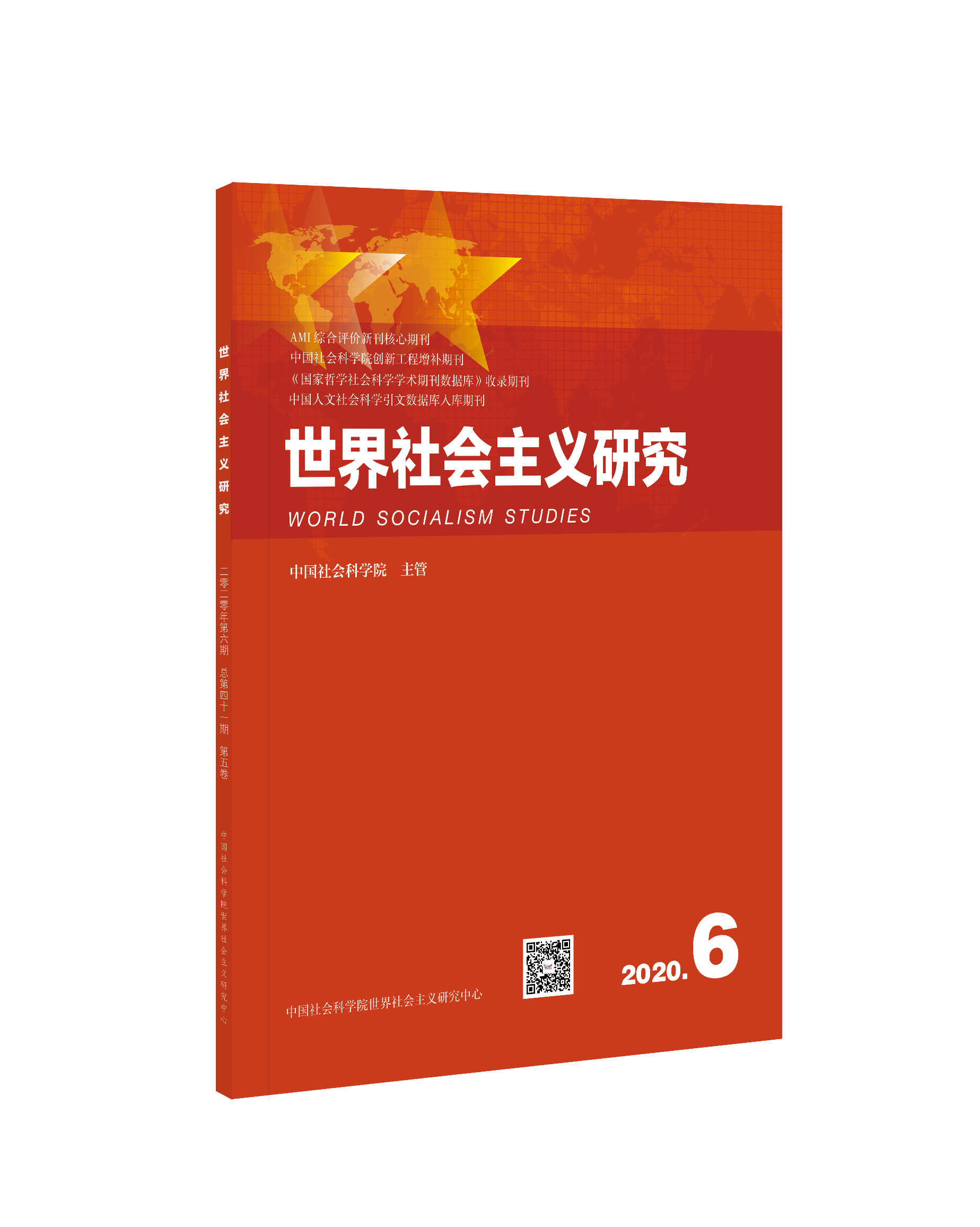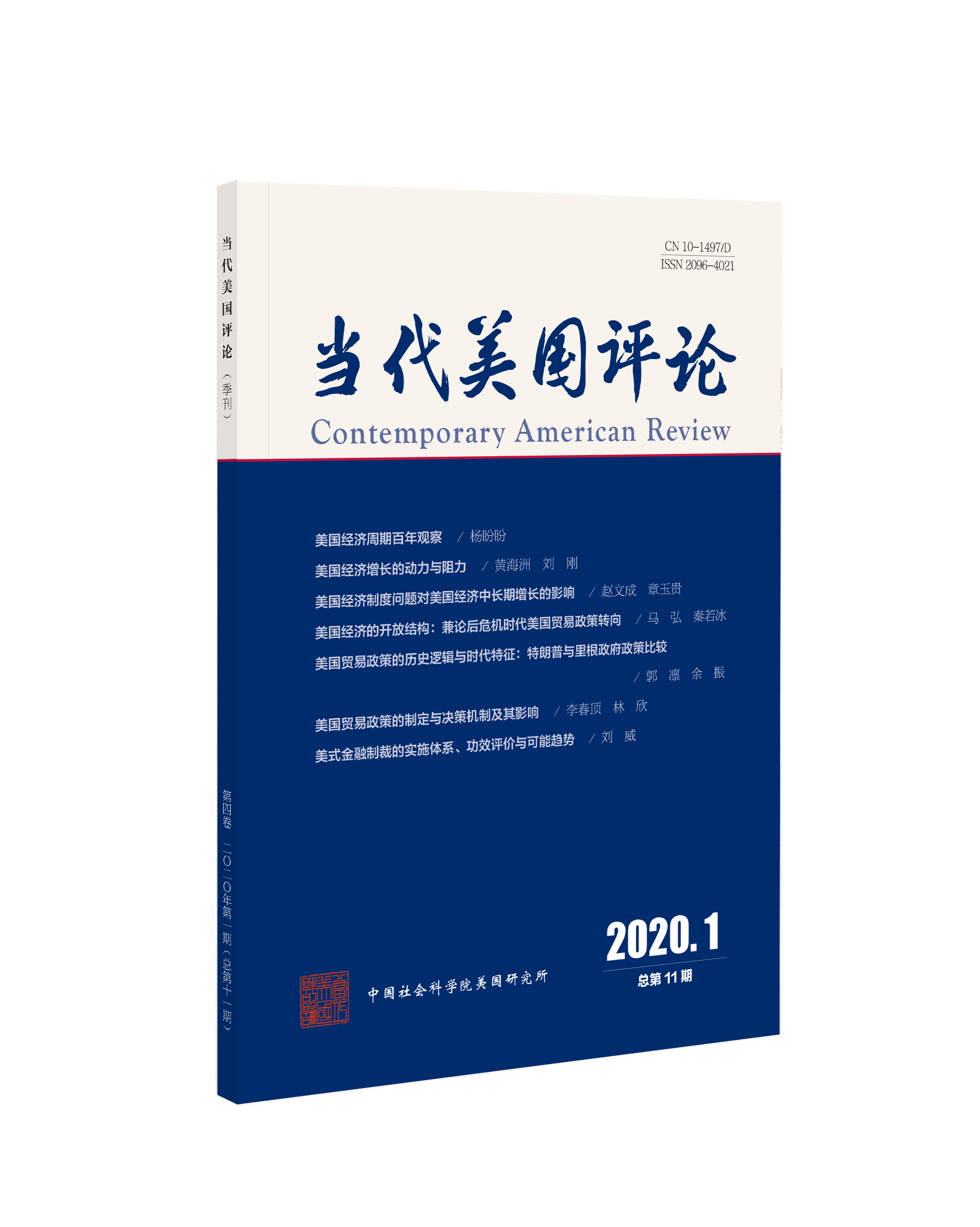最新期刊

目录
过往期刊
参考文献
-
征稿启事
-
编委会
-
补短板:有序培育住房租赁市场
-
一、租赁市场在健康房地产市场中的定位
-
二、其他国家发展住房租赁市场的主要做法
-
三、有序培育住房租赁市场
-
-
2017年房地产市场趋势判断和政策建议
-
一、2016年房地产市场的主要特征
-
二、2016年房地产市场运行和调控存在的问题
-
三、2017年房地产市场趋势的基本研判
-
四、政策建议
-
-
美国税法中的住房抵押贷款利息税前扣除:历史、现状与改革提议
-
一、现行美国联邦收入法典中的HMID条款
-
二、美国税法中HMID的历史演化
-
三、HMID使谁受益
-
四、改革提议
-
五、对中国当前的个人所得税改革有何启示
-
-
中央和地方财政关系改革的关键问题
-
一、理论背景和国际经验
-
二、我国现行财政体制面临的挑战
-
三、推进中央和地方财政关系改革的关键问题
-
-
如何全面准确地认识和衡量我国的赤字率和政府债务负担水平
-
一、赤字率:名义赤字率和实际赤字率
-
二、赤字率:一般赤字率和专项赤字率
-
三、赤字率:预算内和预算外
-
四、我国政府的实际总赤字率
-
五、政府债务负担水平:负债率和债务率
-
六、地方政府债务:一般和专项
-
七、政策建议
-
-
建设开放型智库新体制
-
一、引言
-
二、智库研究文献综述
-
三、中国特色新型智库建设的目标体制是开放型的
-
四、中国社会科学院财经战略研究院建设中国特色新型智库案例
-
五、建设中国特色开放型智库新体制
-
-
中国经济转型升级的内生成长途径
-
一、前言
-
二、政府、市场互相依存的二元性(duality)
-
三、经济转型升级是制度变迁的内生过程
-
四、发展社会主义市场经济的有机经济体:社会资本的重要性
-
五、结论与初步建议
-
-
编辑部絮语
-
Abstracts
-
征订启事
-
版权页
按年份浏览:
- 全部
- 2020
- 2019
- 2018
- 2017
- 2016
[1][1]国务院发展研究中心市场所:《2030年的中国房地产市场》,讨论稿,2016。
[2][2]邵挺:《多措并举,积极化解房地产“去库存”压力》,《发展研究》,2016年第5期。
[3][3]王微、邵挺:《日本20世纪90年代初房地产泡沫破灭的启示》,国务院发展研究中心《调查研究报告》,2016年第187号(总5070号)。
[4][4]新华社:《中央经济工作会议在北京举行 习近平李克强作重要讲话》,http://www.gov.cn/xinwen/2016-12/16/content_5149018.htm,2016年12月16日。
[5][5]李春华、王业强(主编):《中国房地产发展报告No.13(2016)》(中国社科院城市发展与环境研究所房地产蓝皮书),社会科学文献出版社,2016年。
[6][6]中国指数研究院:《中国房地产市场2016总结与2017趋势展望》,研究报告,2016年12月31日。
[7][7]陈杰:《政策性住房金融的美国案例分析》,《财政智库》,第1卷第5期,2016年。
[8][8]《外国税收征管法律译本》组译:《外国税收征管法律译本》,中国税务出版社,2012年。
[9][9]Alpanda,S. and S. Zubairy,Housing and Tax Policy,Journal of Money,Credit and Banking ,48(2-3):485-512,2016.
[10][10]Augustyniak,H.,J. Laszek,K. Olszewski et al.,To Rent or to Buy-Analysis of Housing Tenure Choice Determined by Housing Policy,National Bank of Poland Working Paper ,No.164,2013.
[11][11]Bipartisan Policy Center Debt Reduction Task Force,Restoring America’s Future,http://cdn.bipartisanpolicy.org/wp-content/uploads/sites/default/files/D-R%20Plan%202.0%20FINAL.pdf,November 2010.
[12][12]Bourassa,S. C. and C. W. Peng,Why is Taiwan’s Homeownership Rate So High?Urban Studies ,48:2887-2904,2011.
[13][13]Bourassa Steven,C. et al.,Mortgage Interest Deductions and Homeownership:An International Survey,Swiss Finance Institute Research Paper Series 12-06,February 9,2012.
[14][14]Congressional Budget Office,Options for Reducing the Deficit:2014 to 2023,https://www.cbo.gov/content/options-reducing-deficit-2014-2023,November,2013.
[15][15]Crowley,S. and E. Weiss,Mortgage Interest Deduction Reform,http://nlihc.org/sites/default/files/2016AG_Chapter_3-3.pdf,2016.
[16][16]Fischer W. and C.C. Huang,Mortgage Interest Deduction Is Ripe for Reform:Conversion to Tax Credit Could Raise Revenue and Make Subsidy More Effective and Fairer,Center on Budget and Policy Priorities,http://www.cbpp.org/files/4-4-13hous.pdf,June 25,2013.
[17][17]Fichtner,J. J. and J. M. Feldman,Reforming the Mortgage Interest Deduction,the Mercatus Center,George Mason University Working Paper No. 14-17,http://stlouisrealestatenews.com/Fichtner-Reforming-Mortgage-.pdf,June 2014.
[18][18]Gale,W. G.,J. Gruber and S. I. Stephens-Davidowitz,Encouraging Homeownership through the Tax Code,Tax Notes,115(12),2007.
[19][19]Glaeser,E. L. and J. M. Shapiro,The Benefits of the Home Mortgage Interest Deduction,Tax Policy and the Economy ,17:37-82,MIT Press,2003.
[20][20]Gordon,R. H. and W. Kopczuk,The Choice of the Personal Income Tax Base,Journal of Public Economics ,118:97-110,2014.
[21][21]Gravelle,J. G. and T. L. Hungerford,The Challenge of Individual Income Tax Reform:An Economic Analysis of Tax Base Broadening,Congressional Research Service,2012:7-5700.
[22][22]Hilber,C. A.L. and T. M. Turner,The Mortgage Interest Deduction and its Impact on Homeownership Decisions,Review of Economics and Statistics ,96(4):618-637,2014.
[23][23]Katz,B.,Reform the Mortgage Interest Deduction to Invest in Innovation and Advanced Industries,Brookings:Quality,Independence,Impact,Np,nd Web,2013,22.
[24][24]Levin,E.,Upside Down:Homeownership Tax Programs,http://cfed.org/Upside_Down-Housing_FINAL.pdf,2014.
[25][25]Lowry,S.. Itemized Tax Deductions for Individuals:Data Analysis,Washington,DC:Congressional Research Service ,http://digitalcommons.ilr.cornell.edu/key_workplace/1229/,2014.
[26][26]Morrow,R. N.,Billions of Tax Dollars Spent Inflating the Housing Bubble:How and Why the Mortgage Interest Deduction Failed,Fordham Journal of Corporate and Financial Law ,17(751),2012.
[27][27]McCarty,M.,L. Perl and K. Jones,Overview of Federal Housing Assistance Programs and Policy,Congressional Research Service Report ,RL34591,Washington,DC:Congressional Research Service,2014.
[28][28]National Commission on Fiscal Responsibility and Reform,The Moment of Truth,https://www.fiscalcommission.gov/sites/fiscalcommission.gov/files/documents/TheMomentofTruth12_1_2010.pdf,December 2010.
[29][29]Pomerleau,K.,Tax Foundation Fiscal Fact No. 486:2016 Tax Brackets,http://taxfoundation.org/article/2016-tax-brackets,2015.
[30][30]President’s Advisory Commission on Federal Tax Reform,http://govinfo.library.unt.edu/taxreformpanel/final-report/,November 2005.
[31][31]Steuerle,C. E.,B. H. Harris,S. M. McKernan et al.,Who Benefits from Asset-Building Tax Subsidies?Opportunity and Ownership Initiative Fact Sheet,The Urban Institute,http://webarchive.urban.org/UploadedPDF/413241-Who-Benefits-from-Asset-Building-Tax-Subsidies.pdf,September 2014.
[32][32]Tax Foundation,Comparing the 2016 Presidential Tax Reform Proposals,http://taxfoundation.org/comparing-2016-presidential-tax-reform-proposals,Feburary 2016.
[33][33]Toder,E.,Options to reform the home mortgage interest deduction,Testimony before the House Committee on Ways and Means,Hearing on Tax Reform and Residential Real Estate ,http://docs.house.gov/meetings/WM/WM00/20130425/100763/HHRG-113-WM00-Wstate-ToderE-20130425.pdf,April 25,2013.
[34][34]Toder,E,M. A. Turner,K. Lim and L. Getsinger,Reforming the Mortgage Interest Deduction,http://webarchive.urban.org/publications/412099.html,2010.
[35][35]U.S. Census,Median and Average Sales Price of Houses Sold by Region,https://www.census.gov/construction/nrs/pdf/pricerega.pdf,2016.
[36][36]Ventry,D. J.,The Accidental Deduction:A History and Critique of the Tax Subsidy for Mortgage Interest,Law and Contemporary Problems ,73(1):233-284,2010.
[37][37]Viard,A.,Replacing the Home Mortgage Interest Deduction,Fifteen Ways to Rethink the Federal Budget,The Hamilton Project ,http://www.brookings.edu/research/papers/2013/02/replace-mortgage-interest-deduction,February 2013.
[38][38]楼继伟:《包容性增长中的财税改革》,《发展》,2013年第6期。
[39][39]〔美〕罗纳德·德沃金:《认真对待权利》,信春鹰、吴玉章译,中国大百科全书出版社,1998年。
[40][40]〔美〕奥茨:《财产税与地方政府财政》,丁成日译,中国税务出版社,2005年。
[41][41]〔美〕奥斯特罗姆、帕克斯、惠特克:《公共服务的制度建构》,上海三联书店,2000年。
[42][42]Bahl,Roy,Chorching Gohand and Baoyun Qiao,Reforming the Public Finance System to Fit a More Urbanized China ,2014.
[43][43]Bahl,Roy and Christine Wallich,Intergovernmental Fiscal Relations in China,Policy Research Working Paper 863 ,Washington,DC:World Bank,1992.
[44][44]Hamilton,Bruce W.,Capitalization of Inter jurisdictional Differences in Local Tax Prices,American Economic Review ,66:743-753,1976.
[45][45]Liu,Lili and BaoyunQiao,Restructuring of Legacy Debt for Financing Rural Schools in China,in OctavianoCanuto and Lili Liu(eds.),Until Debt Do Us Part:Subnational Debt,Insolvency,and Markets ,Washington DC:World Bank,pp. 81-108,2013.
[46][46]Martinez-Vazquez,Jorge,Baoyun Qiao and Li Zhang. The role of provincial policies in fiscal equalization outcomes in China,China Review ,8(2):135-167,2008.
[47][47]Martinez-Vazquez,Jorge and Baoyun Qiao,Assessing the Assignment of Expenditure Responsibilities. In Joyce Yanyun Man and Yu-Hung Hong(eds.),China’s Local Public Finance in Transition ,Cambridge,MA:Lincoln Institute of Land Policy,2011.
[48][48]Musgrave,R.A.,The Theory of Public Finance:A Study in Public Economy ,New York:McGraw-Hill,1959.
[49][49]Oates,Wallace E.,Fiscal Federalism ,New York:Harcourt Brace Jovanovich,1972.
[50][50]Oates,Wallace E.,Toward a Second-Generation Theory of Fiscal federalism,mimeo,College Park:University of Maryland,2004.
[51][51]Qian,Yingyi and Barry Weingast,Federalism As a Commitment to Preserving Market Incentives,Journal of Economic Perspectives ,11(4):83-92,1997.
[52][52]Qiao,Baoyun and Anwar Shah,Local Government Organization and Finance:China,in Anwar Shah(ed.),Local Government in Developing Countries ,pp.137-166,Washington,DC:World Bank,2006.
[53][53]Qiao,Baoyun,Jorge Martinez-Vazquez and Yongsheng Xu,The Tradeoff Between Growth and Equity in Decentralization Policy:China’s Experience,Journal of Development Economics ,86(1):112-128,2008.
[54][54]World Bank and Development Research Center of the People’s Republic of China,Urban China:Toward Efficient,Inclusive and Sustainable Urbanization ,Washington DC:World Bank,2014.
[55][55]World Bank,China National Development and Subnational Finance:A Review of Provincial Expenditures ,Washington,DC:World Bank,2002.
[56][56]蔡宁、刘勇:《对3%赤字率标准的再思考——基于赤字、债务与经济增长的动态关系研究》,《财政研究》,2016年第2期。
[57][57]邓秋云、邓力平:《政府性基金预算:基于中国特色财政的理解》,《财政研究》,2016年第7期。
[58][58]丁爽:《中国亟须修改财政赤字算法》,《第一财经日报》,2016年8月29日。
[59][59]高培勇:《全口径赤字是评判积极财政政策力度标尺》,《证券时报》,2016年11月28日。
[60][60]胡锋:《我国政府财政赤字率究竟是多少》,《中国经济时报》,2009年11月24日。
[61][61]黄志龙:《当务之急是突破“3%财政赤字警戒线”传统思维束缚》,《证券日报》,2016年9月3日。
[62][62]李冬妍:《“制度外”政府收支:内外之辨与预算管理》,《财贸经济》,2011年第6期。
[63][63]林双林:《中国财政赤字和政府债务分析》,《经济科学》,2010年第3期。
[64][64]盛松成、梁斌:《可较大幅度提高我国财政赤字率》,《经济日报》,2016年2月14日。
[65][65]王言、霍建英:《财政赤字及其弥补方法分析》,《西部财会》,2004年第7期。
[66][66]王雍君:《财政赤字该怎样解读?》,《中国财政》,2016年第8期。
[67][67]吴旭东、张果:《我国政府性基金的性质、规模与结构研究》,《财经问题研究》,2014年第11期。
[68][68]张牧扬:《提升财政赤字率须考虑政府债务的可持续性》,《中国经济时报》,2016年3月29日。
[69][69]高尚全:《加快建设中国特色新型智库》,《中国智库》,2013年第3期。
[70][70]高培勇:《智库研究趋向产业化 需多学科会诊》,国际在线,http://gb.cri.cn/45731/2014/11/06/7493s4757490.htm,2014年11月6日。
[71][71]高培勇:《智库研究的核心是研以致用》,中国网,http://www.china.com.cn/opinion/think/2015-01/08/content_34504460.htm,2015年1月8日。
[72][72]高培勇:《智库将会成为新产业》,新浪财经网,http://finance.sina.com.cn/hy/20160116/164924169010.shtml,2016年1月16日。(2016a)
[73][73]高培勇:《中国特色新型财经智库的建设》,《财经智库》,第1卷第1期,2016年1月号。(2016b)
[74][74]郭克莎:《推进中国特色新型智库建设的若干思考——一个处理好政府与智库关系的分析视角》,《财经智库》,第1卷第3期,2016年5月号。
[75][75]李扬:《智库建设重要的是进行功能整合》,《人民日报》,2014年2月16日。
[76][76]李扬:《智库建设不能“刮风”》,《光明日报》,2015年2月17日。
[77][77]李扬:《学术与智库功能如何共居一体》,《中国社会科学报》,2015年9月14日。
[78][78]李伟:《探索中国特色新型智库发展之路》,《人民日报》,2014年4月22日。(2014a)
[79][79]李伟:《建设中国特色新型智库,推进国家治理现代化》,2014年9月13日在国研智库2014论坛上的主题演讲,http://theory.people.com.cn/n/2014/0916/c40531-25671746.html。(2014b)
[80][80]李伟:《深化体制机制改革建设高质量中国特色新型智库》,光明日报,2015年1月22日。
[81][81]李伟:《以改革创新推进高质量中国特色新型智库建设》,中国经济新闻网,http://www.cet.com.cn/wzsy/gysd/1460516.shtml,2015年2月3日。
[82][82]李国强:《加快中国智库建设创新 提升智库治理能力》,《中国经济时报》,2015年12月4日。
[83][83]任玉岭:《加强智库建设 促进科学发展》,《中国智库》,2013年第3期。
[84][84]王伟光:《努力建设具有国际影响力、世界知名的中国特色新型智库》,《人民日报》,2015年1月30日。(2015a)
[85][85]王伟光:《走在国家高端智库建设前列》,《光明日报》,2015年12月9日。(2015b)
[86][86]王莉丽:《中国智库思想市场的培育与规制》,《中国人民大学学报》,2014年第2期。
[87][87]夏先良:《创新全球化对中国的挑战与机遇》,《安徽师范大学学报(人文社会科学版)》,2014年第6期。
[88][88]徐晓虎、胡庆平:《从最新〈全球智库调查报告〉看中国智库的发展》,《当代世界与社会主义》,2012年第2期。
[89][89]杨谧:《中外智库齐关注——现代国家治理中的智库建设》,《光明日报》,2016年3月23日。
[90][90]余敏江:《优化决策咨询 加大开放力度 建设“质量型”智库急需体制革新》,《中国社会科学报》,2015年12月24日。
[91][91]于今:《发展智库产业 建设思想市场》,《中国智库》,2013年第3期。
[92][92]Boulding,Kenneth E.,Economics As A Moral Science.,American Economic Review ,59(1):1-12,1969.
[93][93]Coleman,James S.,Social Capital in the Creation of Human Capital,American Journal of Sociology ,94:S95-S120,1988.
[94][94]Coleman,James S.,Foundations of Social Theory ,Cambridge,MA:Harvard University Press,1990.
[95][95]Dow,Sheila C.,Beyond Dualism,Cambridge Journal of Economics ,14(2):143-57,1990.
[96][96]Faber,Malte;Reiner Manstetten and John Proops,Ecological Economics:Concepts and Methods . Cheltenham,UK:Edward Elgar,1996.
[97][97]Galbraith,John Kenneth,Economics and the Public Purpose . Boston:Houghton Mifflin,1973.
[98][98]Galbraith,John Kenneth,The New Industrial State ,4th ed. Boston:Houghton Mifflin,1985.
[99][99]Knack,Stephen and Philip Keefer,Does Social Capital Have an Economic Payoff?A Cross-Country Investigation,Quarterly Journal of Economics ,112(4):1251-88,1997.
[100][100]Lin,Brian Chi-ang,A Sustainable Perspective on the Knowledge Economy:A Critique of Austrian and Mainstream Views.” Ecological Economics ,60(1):324-32,2006.
[101][101]Lin,Brian Chi-ang,A New Vision of the Knowledge Economy,Journal of Economic Surveys ,21(3):553-84,2007.
[102][102]Lin,Brian Chi-ang,China’s Genetically Modified Growth,Mimeo,National Chengchi University ,2016.
[103][103]Munkirs,John R.,The Transformation of American Capitalism:From Competitive Market Structures to Centralized Private Sector Planning ,Armonk,New York:M.E. Sharpe,1985.
[104][104]Myrdal,Gunnar,An International Economy:Problems and Prospects . New York:Harper & Row,1956.
[105][105]Myrdal,Gunnar,Institutional Economics,Journal of Economic Issues ,12(4):771-83.1978.
[106][106]Putnam,Robert D.,Robert Leonardi and Raffaella Y. Nanetti,Making Democracy Work:Civic Traditions in Modern Italy . Princeton:Princeton University Press,1993.
[107][107]Putnam,Robert D.,Bowling Alone:The Collapse and Revival of American Community . New York:Simon & Schuster,2000.
[展开]
相关推荐
手机可扫码阅读
























